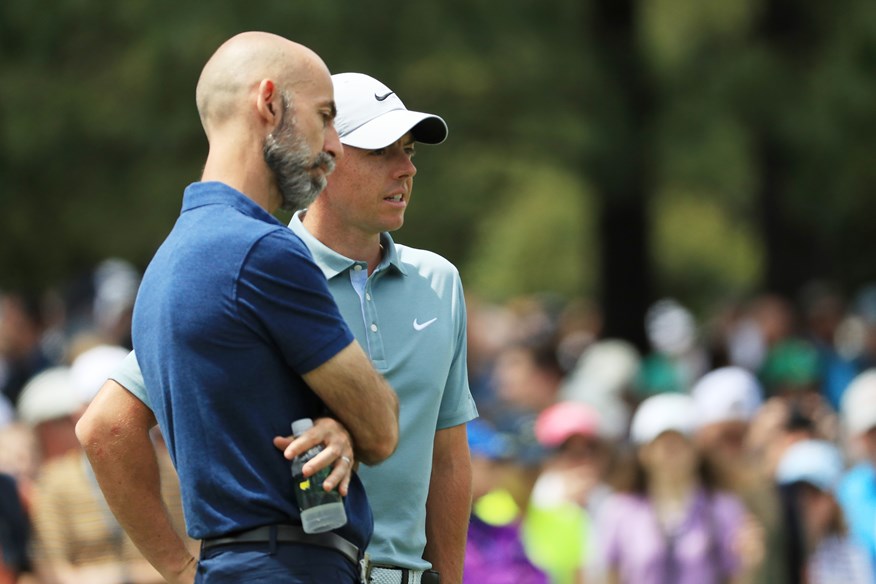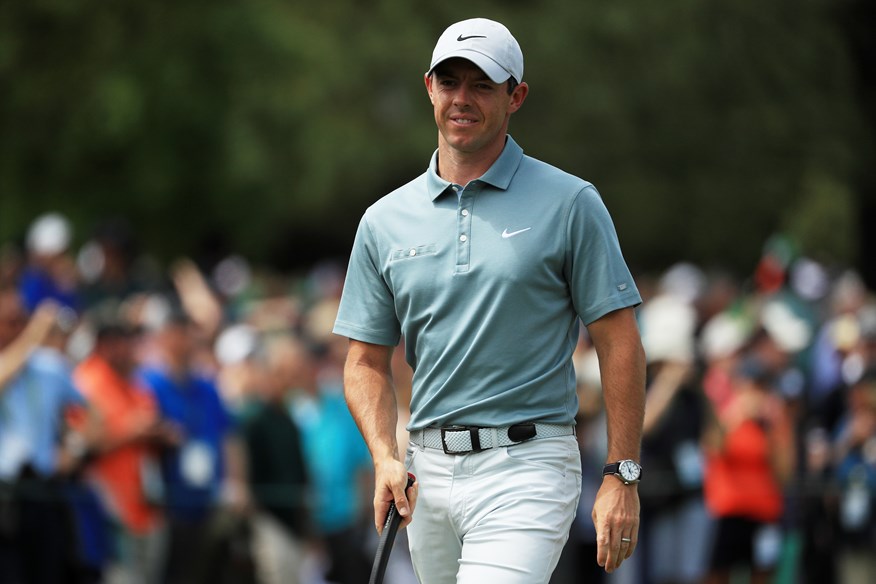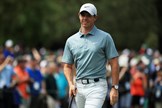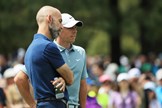Rory McIlroy’s approach to improving his mental game include meditation and juggling
Last updated:
Rory McIlroy insists that a big shift in his attitude towards golf and a focus on his mind-set is the driving force behind recent successes as he targets the grand-slam this week at Augusta National.
From meditation, mind-training and juggling to cutting out dairy from his diet and a difference in his attitude towards his results, Rory McIlroy has made some big changes over the past year.
“I’m almost making more time to practice my mind‑set rather than to be on the range,” said McIlroy during his Masters press conference on Tuesday.
Focusing on the three P’s (perspective, persistance and patience), a much calmer McIlroy insists that his recent string of impressive results – including his win at The Players – are all vindication for how he now prepares himself mentally for tournaments.
And it’s something that has clearly worked: McIlroy hasn’t finished worse than T9 in seven starts in 2019, which includes his 15th PGA Tour win at The Players Championship last month.
“I think if anything, it’s just, you know, focusing on the small things and not living and dying by results, and not getting caught up in trying to play perfect golf,” he said. “Sort of maybe a little more acceptance, and a little bit of change in attitude, which I think has been one of the biggest keys to how I’ve played for the first few months of the year.
“to get that validation, the win at THE PLAYERS, the close calls, the good play that I’ve had over the first four months of the year, it just proves to me that what I’m doing, you know, are the right things for me.”
“They mightn’t be the right things for other people, but I think I’ve found a formula that works for me, and I’m ‑‑ you know, I’m going to persist with it and I’m going to stick to it. Yeah, you know, it’s helped me play some of the best golf of my career so far this year, and you know, hopefully that will continue.
“I think the big thing is my ‑‑ I am not my score; I am not my results. That’s been one of my big things, and that’s ‑‑ it’s perspective. It’s perception. I always talk about these P’s that I try to practice, and it is. I think I’ve had a healthy dose of perspective this year, and that’s helped, either with great results like THE PLAYERS, or undesirable results of not being able to finish a tournament off; being able to put both of those things in perspective have been a good thing.
“I’m only a few months in to trying to get to a point where all the thoughts that I try to have and all the P’s that I try to practice are all natural and subconscious. So very early stages, but I just felt for me to live a healthier life and not just with my career, but away from the golf course, as well, I needed to ‑‑ I just needed some of this. I needed some perspective and I needed to separate the sort of two lives that I have.”
It all started when he began working with Brad Faxon. It’s been well documented that Faxon has given Rory advice on the greens and a little on the course, but he’s been helping with a lot more than that, primarily to do with the mental side of things.
“Some of the stuff that we do is we catch up over a coffee and we chat for an hour, and those are some of the best pieces of work that we’ve done and it’s away from the golf course,” McIlroy said about his work with Faxon. “It’s more mental side of the game and how he approached it, so he’s been a wonderful sounding board and has become a very good friend in the process, as well.”
Faxon also introduced McIlroy to a medical director called Dr. Clayton Skaggs at the Central Institute for Human Performance facility in Jupiter, who the World No.3 was working with on Tuesday at the Masters.

“Brad has been going there for a couple years, and then he recommended them to me. I was at a point last year where I didn’t really have anyone specifically looking after my body, looking after my exercise. So he sort of said, why don’t you go and see these guys and see if they can help, and that was the start of this journey.
“So yeah, there’s been a few people along the way that have helped me over the past sort of eight or nine months, and you know, it’s been a fun start to it and I’m looking forward to keeping going.”
So what exactly does his formula involve? Juggling, ten minutes of meditation a day and mind training.
“look, I’m not going to go and live with the monks for a couple months in Nepal,” started McIlroy when he was asked about meditation, “but just to be able to get your mind in the right place and be able to focus and to center yourself.
“There’s so many apps out there, talking about devices, there’s some great stuff out there, the Calm app, Headspace, there’s a lot of great, guided meditations out there, whether it’s for trying to go to sleep or you’re trying to concentrate or just get your head in the right place. It’s ten minutes a day. It’s not as if I’m being consumed by it. But definitely something that has helped from time to time. Especially in situations where you need your mind to be right.
“Look, I meditated for 20 minutes on the Sunday morning of THE PLAYERS. My routine now consists of meditation, juggling, mind training, you know, doing all the stuff to get yourself in the right place.
“It was actually cool. I was watching the [Augusta National] Women’s Amateur over the weekend and I saw a few women on the range juggling, so it’s catching on.”
In addition to mind-set changes, McIlroy has also changed his diet.
“I cut dairy out of my diet about eight months ago. That helps. That’s definitely made me not as clogged up and as stuffed up”.
How does this mind-set affect how he views Augusta National at the Masters?
McIlroy was quick to shut down a question over whether these changes are designed to help him complete the grand slam at Augusta National, stating instead that the work he is putting in is a lifelong career pursuit and not just geared towards one tournament.
“It’s to make the most of the next 20 years of my career,” said McIlroy. “It’s not just about one week. This is a lifelong journey of trying to improve and learn and try to master my craft, which is golf. That’s what I’ve chosen as what I want to do, and with my life. That’s a lifelong pursuit. It’s not just one week a year.
“Look, you still want to win. It’s not ‑‑ but there’s ways to do it and there’s mechanisms that you can put in place that help you achieve your goals, that aren’t just about the result. It’s about the process of getting to that point.
“It’s not as if I’m coming here not to try and win the golf tournament, but I know if I have the right attitude and I have my goals that I want to achieve this year, the by‑product could be winning this golf tournament.
“I know I’ve played well enough and I’ve shot enough good scores around here over the years that, you know, if I can put my best effort forward, I’m going to have a good chance to do well here.
“But it’s definitely different. My mind‑set is a little different in terms of, you know, I’m still practicing. I’m still getting better. I’m not getting ahead of myself. Not thinking about the tee shot on Thursday or thinking about, you know, what is to come this week, and that’s something I probably will never stop trying to learn or to practice. But I’m in a good place with it.
“I keep saying this, I would dearly love to win this tournament one day. If it doesn’t happen this week, that’s totally fine, I’ll come back next year and have another crack at it. But I’m happy with where everything is, body, mind, game.”
Rory McIlroy will tee off with Rickie Fowler and Cameron Smith at 11:15am on Thursday (4.15pm BST) for the first round of The Masters


